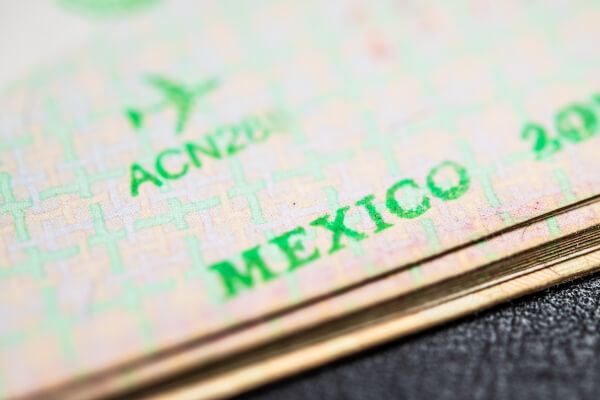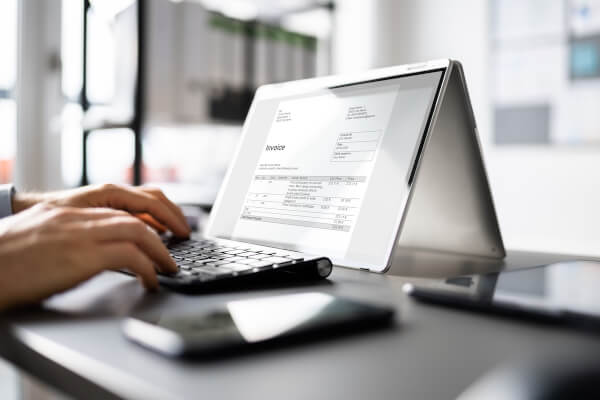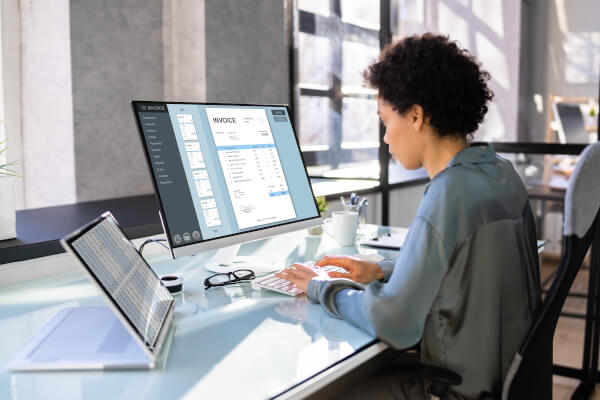How to Hire Independent Contractors in Mexico | Legal Guide & Best Practices
Learn how to hire and pay independent contractors in Mexico. This article also includes an FAQ and best practices about working with contractors in Mexico.

More and more businesses have started to import items to the US from abroad, such as importing from China.
The US is one of the largest importers of goods globally, and as of December 2021, the imports of goods increased by $5.2 billion, totaling up to $259.7 billion.¹
However, as imports and international trade increase, import export businesses must consider import fees and import license requirements depending on the products.
That’s why using financial services that decrease international costs is crucial. Same goes for ensuring that the business meets import license requirements and has the correct documentation.
This article will help break down the import license process, including how to get an import license in the USA and how to apply for an import license if your business requires it.
An import license or import permit is documentation that proves that you’re allowed to import certain kinds of items into the US.
Most imported goods don’t require a permit or license, but depending on the product, certain federal or state agencies may need you to have an import license or import permit for your business.²
Part of the guidance around how to start an import business in the USA is to look at rules and regulations for the specific items you want to import.
| Check the charges you need to pay when importing to the US. Calculate your import duty and learn how Wise can help you with your international business. |
|---|
The process for applying for an import license will differ based on the type of product being imported and the agencies that regulate it.
Specific commodities that require an import license³:
Whether or not you’ll need an import license will depend on the type of products you intend to import.
So who needs an import license? Not all products require an import license, except for specific commodities like the ones listed below.
However, this is not an exhaustive list, so it’s always good to double-check official government sites.
Food products can be imported into the United States as long as the facilities where the products or stored or handled are registered with the FDA and the FDA is notified prior to shipments entering the United States.³⁻⁴
However, some agricultural products do require an import license, such as the ones listed below:
To import products like the ones above, importers will need to obtain a permit through the Foreign Agricultural Service using Form FAS-923 Certification Required to Apply for Dairy Import License.⁵
The above-mentioned items can only be imported if they have undergone Department of Energy test procedures and obtained a certified ratings.
The certification reports need to be submitted to the Department of Energy prior to importing, and all records need to be maintained in case the department asks for them at a later date.⁶
Certifications can be submitted to the Department of Energy’s Compliance Certification Management System (CCMS).⁷
| If you’re not sure you need an import license, US Customers and Borders Protection (CBP) have published a list of commodities requiring an import license or permit. |
|---|
If your items are not on the published list and you’re still unsure, you can always contact CBP for further information or specific agencies in charge of regulating the items.
Import license requirements differ based on regulating agency requirements.
Even if items don’t require an import license, commercial imports still need to fill out CBP entry forms within 15 calendar days from when a shipment arrives at a US port.³
Please note that this information is only meant for general purposes to aid with compliance, but it does not constitute legal advice. You can also reach out to CBP import specialists such as licensed customs brokers, attorneys, or consultants to help facilitate the process.
The next step in becoming an importer in the USA is looking at costs associated with import permits in the USA.
There are no standard fees or costs related to import licenses as most agencies have different requirements.
For example, importers bringing in fish and wildlife will need an import export license from the U.S. Fish and Wildlife Service, which costs about $100.⁹
However, other agencies may have different requirements or fees, so it’s always best to check with them individually before starting the import process.
It’s also important to factor in additional costs associated with importing, such as shipping and logistics fees as well.
Pay your shipping invoices in different currencies with Wise Business. Get the mid-market rate for all of your transfers. Signing up to Wise Business allows access to BatchTransfer which you can use to pay multiple invoices in one go.
Aside from the agency-specific licenses discussed above, no imports or permits are needed for importing items into the US.
An important consideration to bear in mind is taxes, tariffs, and other costs associated with the items that you’re importing.
For example, even if you don’t need an import license or permit, you may still be liable for import tax and other payments such as outstanding shipping invoices.
However, importers need to think about other paperwork that may be required, such as Import Security Filing (ISF), also known as 10+2, with the shipment¹⁰.
The ISF must be submitted at least 24 hours before any items are loaded onto shipping containers or vessels going to the US. Without the ISF, CBP may issue damages for violations that importers are liable for.
The ISF contains essential information for the CBP, such as¹⁰:
Importers are required to provide this information before items leave for the US. However, additional data may be needed depending on the type of cargo, such as transit cargo.
If you are unsure about what information is necessary to include before importing items, it’s always best to check with corresponding agencies that regulate the items or a private sector expert, as mentioned above.
Importing comes with many responsibilities; managing multi-currency payments, supervising the importing process, keeping in mind import-duty and much more.
Open your Wise Business account today
Sources:All sources checked 23 March 2022
*Please see terms of use and product availability for your region or visit Wise fees and pricing for the most up to date pricing and fee information.
This publication is provided for general information purposes and does not constitute legal, tax or other professional advice from Wise Payments Limited or its subsidiaries and its affiliates, and it is not intended as a substitute for obtaining advice from a financial advisor or any other professional.
We make no representations, warranties or guarantees, whether expressed or implied, that the content in the publication is accurate, complete or up to date.

Learn how to hire and pay independent contractors in Mexico. This article also includes an FAQ and best practices about working with contractors in Mexico.

Learn how to navigate the overseas worker recruitment. Discover legal requirements, sourcing strategies, visa compliance, and tips for international hiring.

Paying overseas vendors is common, but the hidden costs of B2B cross-border payments aren’t. Learn how to simplify international business payments today.

B2B payment processing doesn’t have to be hard. Learn how growing businesses can simplify cross-border transactions, streamline invoicing and get paid faster.

Discover strategies to enhance B2B payment security, reduce fraud risk, and protect cash flow using secure digital payment methods and automated workflows.

B2B payment automation helps small businesses save time and reduce costs. Read about how automation replaces manual tasks and boosts accuracy and cash flow.